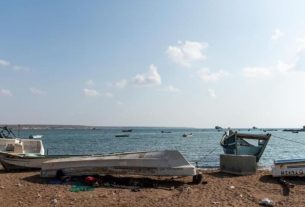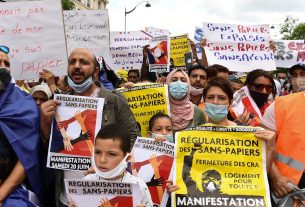Domestic violence
Domestic violence or abuse is also known as “intimate partner violence” and is defined as a pattern of behaviour in any relationship that is used to gain or maintain power and control over an intimate partner.
The term domestic violence or abuse covers a range of abusive behaviours which includes, but is not limited to, physical, emotional, psychological, sexual and financial abuse. It can also include controlling and coercive behaviour. It can happen to anyone, regardless of age, sex, gender identity, sexuality, religion, ethnicity, disability or even when a relationship has ended.
You do not have to wait for help as there are resources available to support you. It is important to tell someone what you are going through, so that you can get the help that you need to deal with the situation.
If you’re worried someone might be checking your internet history, and may see you have visited this page, visit Women’s Aid online for information on covering your internet search history.
Definition of an abusive relationship
Anyone can experience domestic abuse, and the different types of domestic abuse (intimate partner violence, sexual assault, and stalking) including sexual violence.
The UK government’s definition of domestic abuse
Any incident or pattern of incidents of controlling, coercive or threatening behaviour, violence, or abuse between those aged 16 or above who are or have been intimate partners or family members regardless of gender or sexuality. This can encompass but is not limited to the following types of abuse: psychological, physical, sexual, financial, emotional, controlling, and coercive behaviour. [The Domestic Abuse Act 2021]
The Nigeria’s definition of domestic abuse
In Lagos State, domestic violence is defined to mean physical abuse, sexual abuse exploitation including but not limited to rape, incest, and sexual assault; starvation; emotional, verbal and psychological abuse; economic abuse and exploitation; denial of basic education; intimidation; harassment; stalking; hazardous attack including acid bath with offensive and poisonous substance; damage to property among others.
[Section 18 (g) of Protection Against Domestic Violence Law of Lagos State, 2007]
The Violence Against Persons Prohibition Act 2015 (“VAPP Act or The Act”) also defines domestic violence. The VAPP Act provides that “a person who wilfully causes or inflicts physical injury on another person by means of any weapon, substance or object, commits an offence”, and is liable on conviction to a term of imprisonment or a fine or both. The Act is applicable only in the Federal Capital Territory, Abuja and in other states of the Federation where the Act has been domesticated.
The types of abuse experienced may change over time but will always result in the abuser having power and control over the victim. It is important to know that domestic abuse is never the victim’s fault.
First steps
It is your choice about what you do next. This information shows some options that are available to you.
The most important thing is to make sure that you are safe. You can:
- contact the emergency police number in Nigeria on 112 or 767 (Lagos) from a Nigerian landline or Nigerian mobile phone.
- contact your tour operator if you are travelling with one.
- contact the British High Commission in Abuja on +234 020 94623100 or British Deputy High Commission, Lagos on +234 201 277 0780-82. We can provide you with information on local police and medical procedures. Anything you tell us will be in confidence. If you want, we can contact your family and friends for you
- if you have been affected by rape or sexual assault, refer to our guide for victims of rape and sexual assault in Nigeria.
The British High Commission can:
- help you to contact your insurance company and your family
- help you to make arrangements to travel back to the UK
- provide you with information on local support in the UK
- provide you with lists of English-speaking medical facilities, lawyers
If you are worried that someone you know is experiencing domestic abuse, you can contact the British High Commission or Deputy High Commission. However, our assistance will be limited without the consent of the victim. If you believe someone is at immediate risk of harm, you should call 112.
If you need medical treatment
For medical advice, treatment or attention, check our list of medical facilities in Nigeria.
If you find it helpful, you should ask someone to go with you to the hospital or medical centre for support. This could be a friend or family member. If you need additional support, contact the British High Commission, Abuja or the British Deputy High Commission, Lagos.
Safety planning
You may wish to consider taking precautions to plan for your safety. This could include:
- keeping your phone charged, and write down any phone numbers that are necessary to request assistance
- informing a trusted neighbour or acquaintance of the problem
- asking relatives or friends to visit more frequently
- collecting information about local support
- taking pictures of any injuries or audio/video recording of incident
- preparing a small emergency bag with identification papers, money, and clothes
- staying away from dangerous places in the home, in the event of violence, such as a kitchen.
If you want to report an incident to the police
If you want to report the incident to police, take photos of your injuries and provide evidence, such as video/voice recordings, text messages, and details of any witnesses.
If you are a victim of domestic abuse, and you choose to make a report, you could report the incident to the police, or the Domestic and Sexual Violence Agency (DSVA) if you are in Lagos. You should do so as soon as possible.
Police procedures
If you are a victim of Domestic Violence, you can report the incident to the nearest Police station to your location, and the matter will be referred to the Family Support Unit (FSU) which has specially trained police officers to attend to your case. However if the station does not have a FSU desk, you will be referred to the nearest police station with the FSU desk to attend to you.
If you want to report the abuse to the police and file a complaint against the perpetrator, contact the police:
- on 112 if you are in immediate danger or
- in person at the nearest police station
At the police station
The Nigerian Police Force set up Gender Units and FSUs. These units ensure that Sexual and Gender Based Violence (SGBV) victims are handled sensitively, investigations are carried out, evidence is gathered, and victims are safeguarded from further harm. The units also collaborate with other government and civil society organisations such as the Gnosis Help Initiative and International Federation of Women Lawyers (FIDA) to ensure that specialist services are provided to victims.
You can ask the police to inform the British High Commission for you. With your consent, we will work with the local police and can contact family and friends on your behalf.
You will be expected to provide a full statement, giving details of the abuse, where, when and when it happened, and the identity of the perpetrator. You may be asked to name any witnesses.
The police may speak directly to your abuser, or to you both together as a family. If you do file a complaint, you should ask the police for the case number and a copy of their report.
Court procedures
The case may be referred to Public Prosecution. This process can take a long time and the Public Prosecutor may request additional information or further investigation.
You may be called to give evidence in person during the court proceedings. Proceedings are not normally held in a closed court, and evidence may not be given from behind screens or via video.
The Court will not automatically update the British High Commission on the progress of your case, so you should appoint a local lawyer and remain in contact with them for regular updates on your case. A lawyer can also tell you about any actions you need to take in Lagos state. A lawyer can also apply for a protection order on your behalf where you feel your safety is threatened by an abuser or you have already been physically abused.
If the case goes to trial and you are no longer residing in Nigeria, the authorities may ask you to return to give evidence. You will need to make your own arrangements for your travel and accommodation.
If you do not want to report an incident to the police
It is your choice on whether to report the abuse. If you don’t report it, your case will not be investigated. However, if you seek medical assistance from a local hospital, they may report it to the police. There are also psychologists available to provide counselling support services to help victims heal from abuse at the Domestic and Sexual Violence Agency in Lagos. If you are prescribed any medication, you may wish to keep a record of the medication and let your local health care provider or GP know.
The British High Commission will be able to help you, regardless of whether you report the abuse or not.
Reporting to UK police (England and Wales) (The Domestic Abuse Act 2021)
In almost all instances, you must report the abuse before you leave Nigeria if you want it to be investigated. If, however, you do not want to report it in Nigeria, you may wish to report it to the UK police. You should be aware that while the UK police can record an incident and assist you in reporting the abuse to the overseas authority (via Interpol), they cannot insist that the abuse is investigated, nor can they conduct investigations abroad. The decision to pursue an investigation rests with the local authorities in Nigeria.
The UK police can offer you access to victim support in the UK. They may still send some details of the abuse to police in Nigeria as this might be necessary in order to protect vulnerable people, or to stop more abuse being committed.
If you are in the UK, you can see this guidance on how to get help in the UK relating to domestic abuse.
Support organisations in Nigeria
Lagos State Domestic and Sexual Violence Agency (DSVA)
-
DSVA is a collection of professional service providers and officials that respond as a group by providing legal, medical, emergency assistance, counselling and psychological; and psychosocial support to survivors of domestic and sexual violence.
- Website: Lagos DSVA
- Address: Plot B Block J, Otunba Jobi Fele Way (Landmark – Mind Builders School/ Corporate Affairs Commission Office Alausa, Agidingbi, Ikeja.
- Phone number. +234 (0) 8000333333
The Gnosis Help Initiative
- Address: 229 Herbert Macaulay Road, Alagomeji, Yaba.
- Phone number:. +234 (0) 9093214942
- Instagram: @gnosis_help
The International Federation of Women Lawyers (FIDA Epe Branch)
Project Alert on Violence Against Women
- Providing care, shelter and rehabilitation programs for victims of domestic violence. Provides a 24/7 support for victims of domestic and sexual violence
- Website: Project Alert Nigeria
- Office address: 21 Akinsanya Street, Off Isheri Road, Ojodu-Berger, Lagos.
- Phone number: +234 (0) 8180091072
- Email: [email protected]
Cleen Foundation
The Cleen Foundation has its headquarters in Abuja, and branches in Edo, Lagos, and Ibadan.
- Website: www.cleen.org
- Address: 26, Bamenda Crescent, Wuse Zone 3, Abuja, Nigeria.
- Phone number: +234 (0) 7067899368
BAOBAB for Women’s Human Rights
- Website: Baobab for women
- Office Address: Agbonyi Road, Lagoon Estate, Lagos, Nigeria.
- Phone: +234 (0) 8023330981; +234 (0) 2014747931; +234 (0) 2018980834.
- Email: [email protected]
Women Resque
- Website: Women Resque
- Phone number: +234 (0)916 000 0168
- WhatsApp: +234 (0) 803 569 6829
See our list of charities and counsellors in Nigeria
If you are considering returning to the UK you may also wish to contact support organisations.
Freephone National Domestic Abuse Helpline, run by Refuge
Galop (for lesbian, gay, bisexual and transgender people)
Live Fear Free helpline (Wales)
Men’s Advice Line
Rape Crisis (England and Wales)
Respect phone line
Scotland’s Domestic Abuse and Forced Marriage Helpline
- Tel: 0800 027 1234
- Website: SDAFMH
Scottish Women’s Aid
Local services
Find your nearest support office on: https://www.womensaid.org.uk/domestic-abuse-directory.
Disclaimer
This information has been prepared by UK government officials who are not legally or medically trained. It should therefore never be used as a substitute for professional medical or legal advice. It is intended to help British nationals abroad make their own informed decisions. Neither the UK government nor any official of the British High Commission accept liability for any loss or damage which you might suffer as a result of relying on the information supplied.



